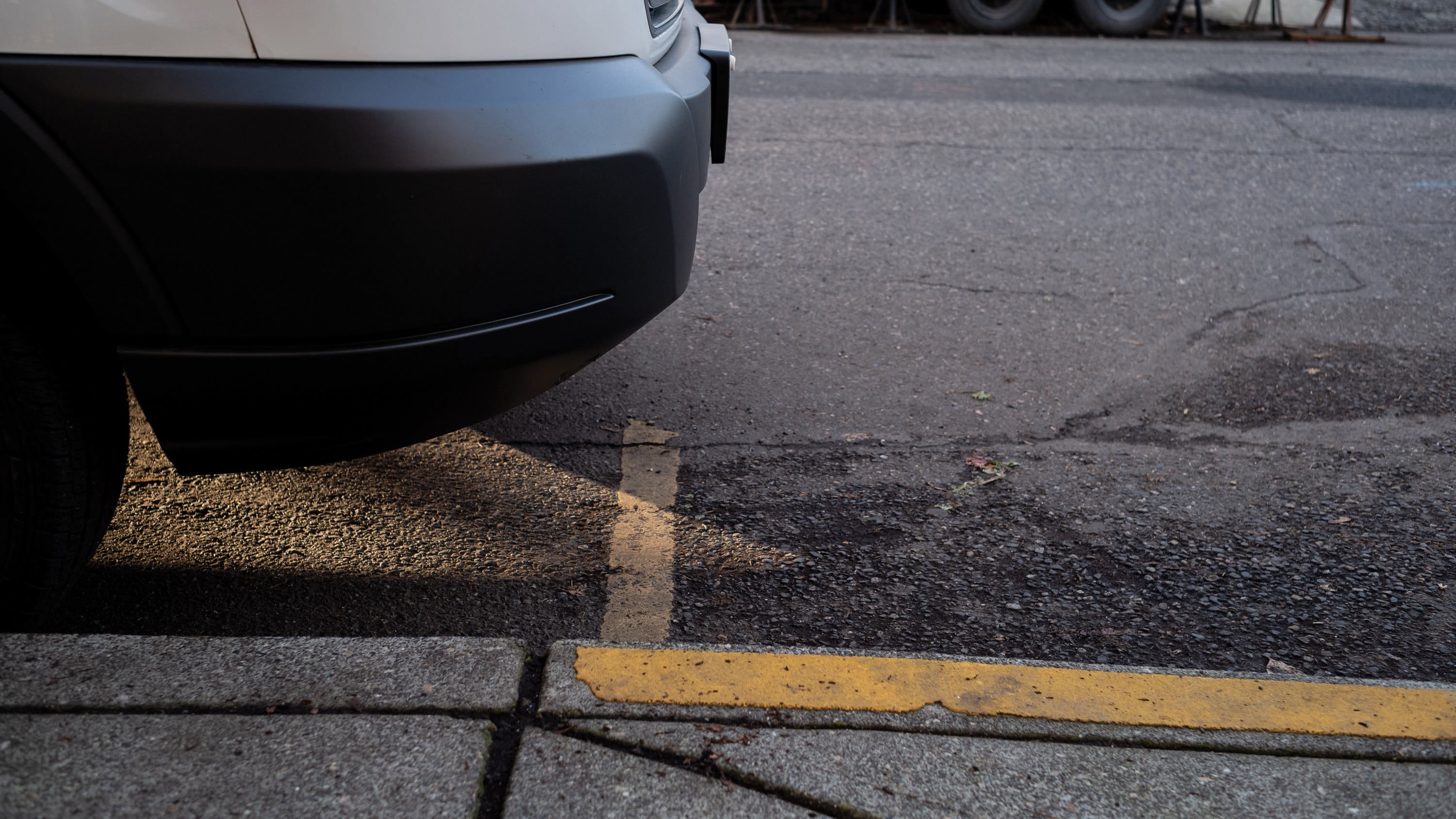A $5.9 million lawsuit filed against the City of Portland claims that the city is ignoring Oregon law by allowing drivers to park at the edge of intersections.
Advocates have long criticized Portland's lax enforcement of a state law that prohibits cars from parking within 20 feet of an intersection, saying that it reduces visibility and makes streets unsafe. However, the law allows "road authority" for individual cities, a clause Portland leans on to only mark some intersections with yellow-painted curbs.
On Feb. 20, Portland injury lawyer Scott Kocher filed a suit alleging that the lack of enforcement is negligence, and led to the wrongful death of a motorcyclist last year. First reported by Bike Portland, the lawsuit seeks $5.9 million in damages for the motorcyclist's estate, and a declaration that Portland must provide parking setbacks at all intersections.
"It's a documented problem," Kocher tells WW. "And this crash illustrates that in the most tragic way."
The plaintiff is a representative for the estate of Elijah Coe, a motorcyclist who was killed by a collision with a car last year.
On May 3, 2019, Coe was riding his motorcycle towards Southeast 17th Avenue and East Burnside Street when a driver, Eric Whitfield, pulled out into the intersection, attempting to turn left and head westbound on Burnside. Coe was able to swerve around the car, but collided with another vehicle in the opposite lane. The crash was recorded by surveillance cameras.
The lawsuit alleges that the crash could have been avoided if cars hadn't been legally parked at the corners of the intersection, blocking Whitfield's view.
It also challenges Portland's interpretation of the road authority clause, arguing that the limited enforcement violates federal law, previous court rulings and city and state codes. The complaint also claims that the it violates Portland Bureau of Transportation's enabling statue to provide "reasonably safe" streets: "This duty is fundamental to PBOT's role as a transportation agency and is not subject to any excuse, justification, or loophole."
"I think it's a very unusual argument that a general statue would supersede a specific statue," says Kocher.
City transportation spokespeople declined to comment on pending litigation. Neither could Commissioner Chloe Eudaly, who oversees the transportation bureau, could not immediately be reached.
Kocher believes that local authorities have avoided the issue because reducing street parking in Portland is an unpopular topic.
"This isn't millions of dollars to solve a problem, it's a question of political will," he says. "We have to realize that safety is more important than parking."

